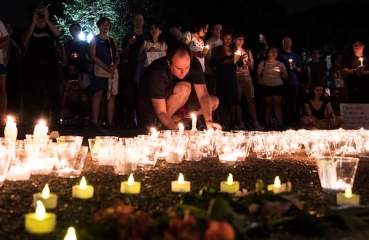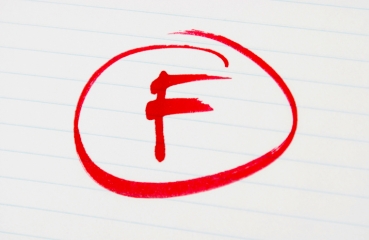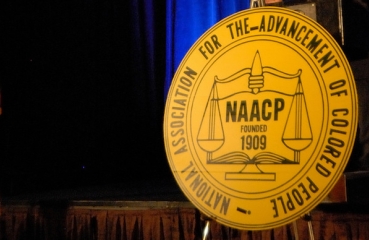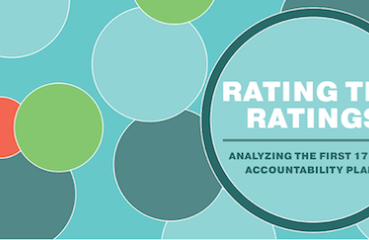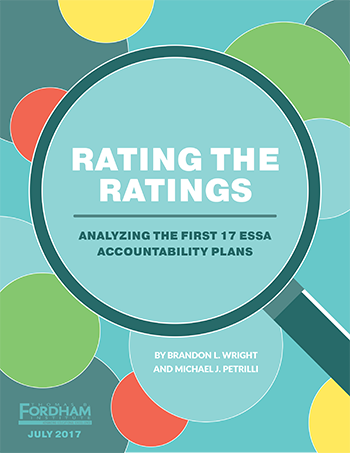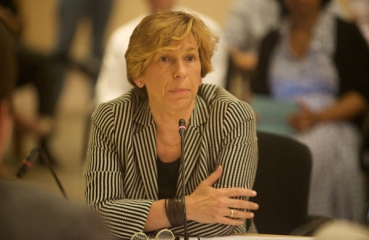Why is the location of children's homes still the primary predictor of their educational outcomes?
Derrell BradfordBy Derrell Bradford
Steal this idea: A national effort to help schools go from good to great
Michael J. PetrilliBy Michael J. Petrilli
Yes, Catholic schools need our prayers, but they could use our tax dollars, too
On this week's podcast, special guest Kathleen Porter-Magee, superintendent and chief academic officer of Partnership Schools, joins Brandon Wright and Checker Finn to discuss the state of Catholic schools and what role vouchers might play in their future. During the Research Minute, Amber Northern examines how charter schools affect the performance and spending of nearby district schools in New York City.
Ohio's charter sector is contracting, and that's worrisome for the whole country
Jamie Davies O'LearyBy Jamie Davies O'Leary
How mandatory college entrance exams affect matriculation
Amber M. Northern, Ph.D.By Amber M. Northern, Ph.D.
The effects of teacher effectiveness on student achievement
Christopher YalumaBy Christopher Yaluma
Hard lessons from Ohio’s innovation fund
Aaron ChurchillNOTES: John Mullaney is the Executive Director of the Nord Family Foundation. Both authors were part of the Straight A Fund advisory board in FY 14-15.This piece originally appeared in a slightly different form in the Cleveland Plain Dealer.
Ohio’s charter sector continues to contract, and here’s why that’s worrisome
Jamie Davies O'LearyThe big squeeze continues. Ohio’s charter sector shrinks again as reforms enacted in 2012 and 2015 are fully implemented. The Buckeye State will see a record-low number of new charter schools open this fall, a slow-down that persists for the third year in a row.
Illiteracy in Ohio: Where does the buck stop?
Madison YoderLast month, several urban Ohio school districts began sounding alarms over Ohio’s third-grade reading guarantee—a policy put in place several years ago that requires students who don’t reach reading proficiency by the end of grade three to be held back—fearful that a much larger number of their third graders won’t meet the requirements for promotion.
No, Common Core did not increase student suicides. And claiming it did is reprehensible.
Erika SanziBy Erika Sanzi
A maverick's take on data
On this week's podcast, special guest Paige Kowalski, executive vice president for the Data Quality Campaign, joins Mike Petrilli and Alyssa Schwenk to discuss how parents and teachers can get access to powerful student data. During the Research Minute, Amber Northern examines teacher mobility in Florida.
How stakes affect the accuracy and efficacy of teacher ratings
Amber M. Northern, Ph.D.By Amber M. Northern, Ph.D.
The NAACP's duplicitous engagement of black families on charter schools is a betrayal
Derrell BradfordBy Derrell Bradford
The Challenges of High School Choice—and How to Overcome Them
What are the pitfalls to the typical comprehensive high school that high schools of choice can better remedy?
The first 17 ESSA accountability plans correct many NCLB-era errors
Brandon L. Wright, Michael J. PetrilliBy Brandon L. Wright and Michael J. Petrilli
Rating the Ratings: Analyzing the First 17 ESSA Accountability Plans
Brandon L. Wright, Michael J. PetrilliThe Every Student Succeeds Act (ESSA) grants states more authority over their school accountability systems than did No Child Left Behind (NCLB)—meaning that states now have a greater opportunity to design improved school ratings. Rating the Ratings: Analyzing the First 17 ESSA Accountability Plans examines whether states are making the most of the moment.
Louisiana threads the needle: Curriculum reform in a local-control state
Robert PondiscioBy Robert Pondiscio
ESSA, innovation, and optimism
On this week's podcast, special guest Lizzette Gonzalez Reynolds, vice president of policy at the Foundation for Excellence in Education, joins Alyssa Schwenk and Brandon Wright to discuss whether state ESSA plans have been innovative, and whether they’re cause for optimism. During the Research Minute, Amber Northern examines the effect of mandatory college entrance exams on college enrollment.
More than just numbers: Policy implications of the latest CREDO charter study
Jamie Davies O'LearyLast month, the Center for Research on Educational Options (CREDO) at Stanford University released a new analysis of the performance of charter management networks, entities that may be engaged to oversee the day-to-day operations of a charter school.


